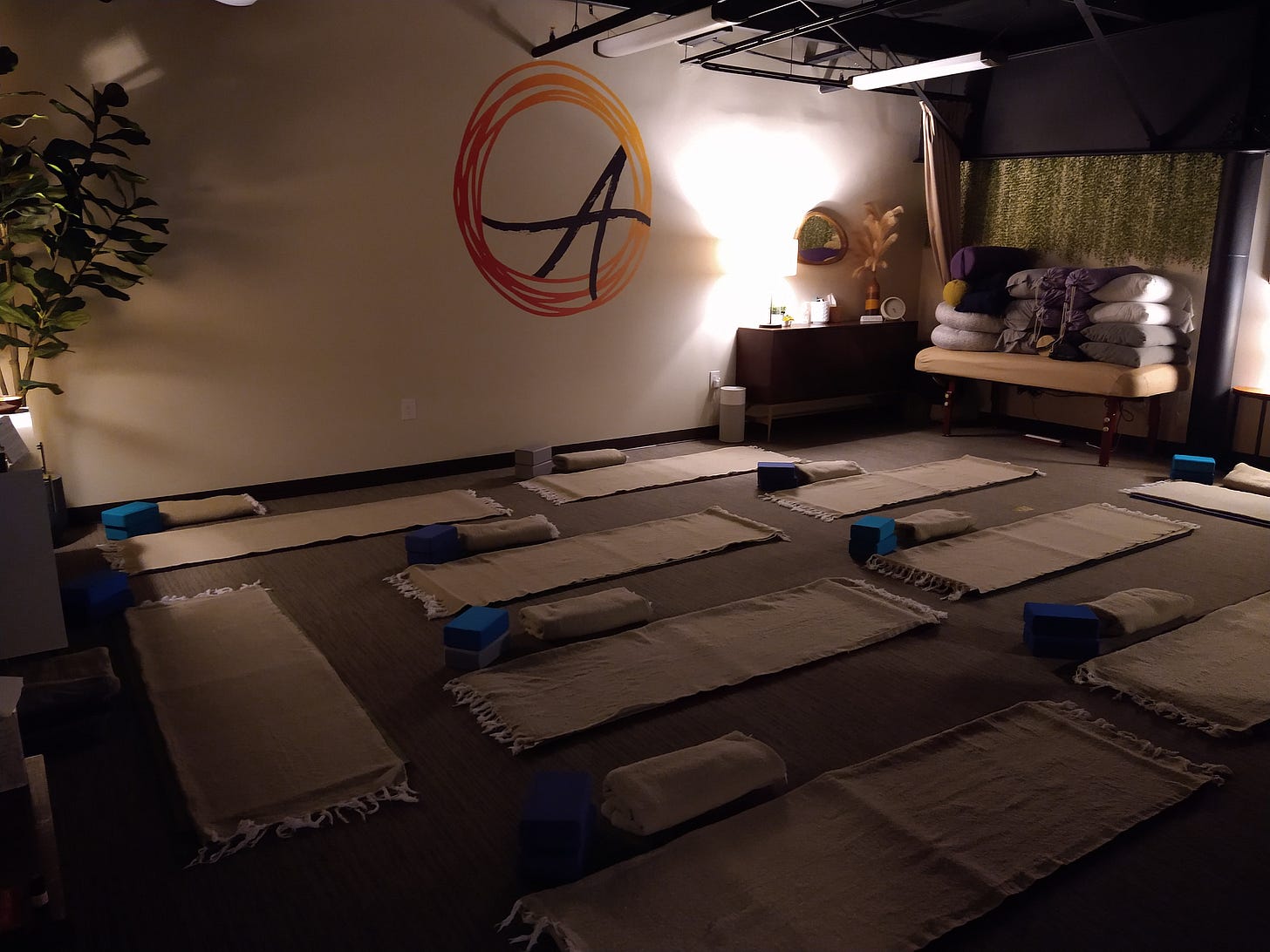How's your nervous system, friend?
a check-in, and an invitation to ease
Have you ever heard of the concept of “nervous system hygiene”? It’s about how we take care of and “keep clean” our nervous system so that it can function properly and run well. Stress is a normal part of everyone’s life and cannot be avoided (and is modulated by the autonomic nervous system), but maintaining nervous system hygiene means we take intentional and deliberate steps to nourish our nervous system and support it so that it can continue to do its job for us. Take it for granted and ignore it, and unfortunately in these times of high stress, you will probably start to feel the effects of a compromised system.
What does a compromised autonomic nervous system look like? It’s the person who, long after a stressful event has passed, finds themselves still high-strung and anxious (as if the event never ended). It’s also the person who is in a constant state of overwhelm, who finds it hard to rest (yet may constantly feel tired). It can also be the one who always resists taking on new tasks or endeavors (even those that they love and are life-giving), because they feel that they are constantly at full capacity mentally and emotionally and that there’s simply no room left. It can also be the one who experiences chronic tension and pain, for the myofascial structures of the body are simply an expression of the gripping tension in the deeper systems. And it can be the one who feels the temptation to stay in bed all day, exhausted by life and ready to collapse. A compromised nervous system can look a lot of different ways, depending on personality, body composition, and history.
The answer to any of those (or other) expressions is not “don’t do that!”; suppressing natural responses never proves helpful in the long run, nor sustainable. A good answer (or at least the starting point towards a good answer), for those that identify with the signs and symptoms of an overly-taxed nervous system, is to NOTICE it. It’s easy to move through life, unaware of our own patterns, behaviors, and habits, unaware of what’s happening within us. So noticing—gaining awareness—of what our system is doing, is the crucial first step in nervous system hygiene.
Once you begin to notice when you’re anxious, agitated, overwhelmed, about to fall apart, exhausted, depressed, or whatever other state you’re in, then the question becomes “What can I do about it?”
Honestly, there are a thousand different ways you can facilitate a shift in the nervous system and de-stress. Even without conscious awareness, we gravitate towards the things that make us feel better or that decrease our suffering in the moment—some are more helpful than others: fun, relaxation, shopping, sex, being with friends, nature, pets, massage, food, novel experiences, TV, alcohol, you name it. ANYTHING can be used to foster greater connection or greater disconnection with our self and with others, depending on how and why you use it. We can check in when we’re stressed, or we can check out.
In our culture, we tend to be more adept at checking out — choosing activities to distract ourselves from the stress of life. This has its place, but I find that checking out is sorta like pushing the pause button on life stressors; they don’t really move the needle as far as our capacity to deal with them, they just allow us to take a break from them for a time. When the TV goes off, when the social media scrolling stops, etc. we are right back where we were, with no new strategies gained to diminish the effects of the stress or to give us new tools to face them. So, useful in the moment perhaps, but that’s about it. And it’s fine when we need to take breaks by checking out, we just want to recognize these activities for what they are and what they do (or don’t do). Awareness.
Checking in—choosing things that foster greater connection with our self and with others—is infinitely more helpful in the long-term when it comes to our responses to stress, and to maintaining nervous system hygiene. Checking in—repeatedly, with intention, and often with a guide—is the stuff of nervous system healing.
I developed a class for those who want or need more options/chances to check in amidst life stressors and gain greater awareness of their internal landscape. A chance to do nervous system hygiene, to tend to what they’re holding and to shift the nervous system from a fight/flight or freeze state to one of “calm yet alert”, grounded, focused, clear-headed, and light. I named it Release & Refresh, and I invited local trauma-informed yoga teacher Michelle Ester-Bode to join me in this new endeavor. We’ve held several classes now and are thoroughly enjoying ourselves as we collaborate to hold a unique space for the 9 participants each time—a space that facilitates dropping out of states of stress by checking in with their body, mind, and emotions, and gaining awareness of what’s going on deep within.

So, if you’re looking for new or additional ways to check in as a strategy for handling the stresses of life, consider joining us. We have a once-monthly Wednesday class that is 90 minutes long (although this one is sold out through December), and a once-monthly Friday class that is a whopping 2 hours long (sort of like a mini-retreat leading into the weekend). Check them out here.
Be well, friends!
~Allie



just wanted to leave a question, about your destress class; is there a fee? If so, how much?